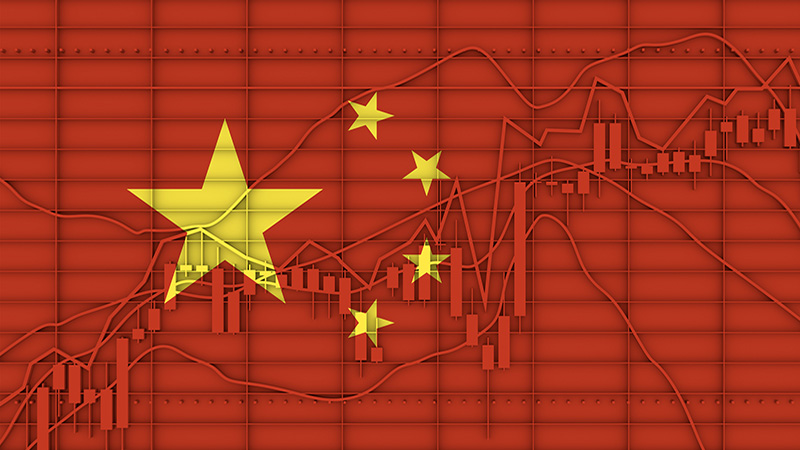Investors turned their backs on China funds in recent years as the sector made continual losses, falling 20.2% on average over the past three years. Some £776m was withdrawn from these funds over the period as having an allocation to China within portfolios became a liability.
However, these funds came bounding back in 2024, with IA China becoming the fifth-best performing Investment Association sector of the year as returns leapt 13.8%.
This strong performance contrasted with prior years, with eleven funds making total returns upwards of 20%, and only two portfolios – Guinness China A Share and Fidelity China – reporting losses.
See also: Is China at a turning point, or will it disappoint yet again?
It begs the question: should investors be re-considering an allocation to China funds within their portfolios? Those with a sturdy risk appetite should certainly be eyeing up the sector, according to Chelsea Financial Services managing director Darius McDermott, who said China has some of the highest return potential on the market this year.
Bold stimulus plans from the People’s Bank of China (PBoC) are what propelled Chinese equities in 2024, and further measures to revive China’s economy and stabilise its property market are expected in the months ahead. These new stimulus announcements could again push China funds to new heights, according to McDermott.
See also: Chinese markets soar following announcement of ‘aggressive’ stimulus package
Yet the readjustment last year was sharp and fast, making it easy to miss. The IA China sector shot up 20.7% in the week following the PBoC’s announcement in September before levelling out, where it has stayed ever since. Investors who want to bank on another round of stimulus plans stimulating the market should act fast, or risk being left behind, McDermott warned.
“It shot up in a very short period of time, so if you’re waiting for another stimulus announcement, be ready to pull the trigger, because it won’t wait for you,” he added.
Tariffs could extinguish hopes for growth
There is one overbearing factor that could turn China’s outlook from hopeful to grim – tariffs. Trump’s proposed 60% tariff on Chinese imports to the US could offset the positive sentiment injected by upcoming stimulus announcements and plunge China funds’ returns back into the red, according to McDermott.
See also: How will Trump’s tariffs impact markets?
Until further details are shared on the extent of tariffs and stimulus plans, the potential outcomes for China funds remains stark. Investors stand to make some high returns from the Chinese market in 2025, but could equally lose just as much, according to McDermott.
“You can’t have a low risk way of investing in China. If you’re investing in China, you are seeking superior returns, and for that you must expect superior risk,” he added.
“If Chinese equities went up 40% this year I wouldn’t be surprised – but equally if they went down 40% I also wouldn’t be surprised. When you’ve got such a wide spread of potential outcomes, it really shows the inherent volatility in that market.
See also: China’s AI breakthrough causes US tech stock tumble
“There is more stimulus to come after the tariff position is understood, and that could be a catalyst as it was last year for a sharp upward tick. But the lingering threat of course is China’s interest in Taiwan – that question mark refuses to go away.
“And with the Communist Party of China becoming more authoritarian under Xi Jinping, all those question marks still have people feeling uncomfortable about investing in the region.”
Despite investors’ hesitancy to reallocate to China, Ben Yearsley, director of Shore Financial Planning, said China funds are “cheap and fascinating”. Share prices in the region have dropped sizably amid the downturn of the past few years, presenting an appealing entry point for those with the right risk tolerance.
See also: A World Of Higher Inflation 2025
Yearsley is continuing to buy funds such as Fidelity China Special Situations and Matthews China Discovery, which are up 18.1% and 16.6% respectively over the past year.
The former is trading at a 12.7% discount to its net asset value (NAV), which could provide investors with a slight buffer should returns tumble.











